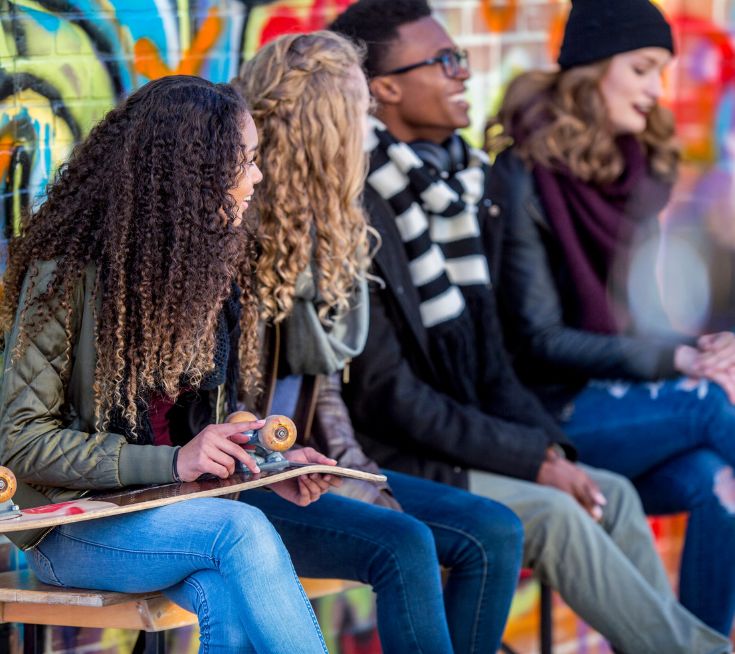Guidance For Practising Safe Partying From Youthsafe
As young people gradually increase their independence and social activity, partying has become a popular way to meet new people and have fun. At Youthsafe, we work with individuals and organisations to raise awareness about inherent risks associated with partying and develop strategies to help young people party safely.
Want to know more about our work promoting safe partying among young people? Send us a message.
Send us a message
Why Safe Partying Matters
Young people are always enthusiastic about exploring new social situations like partying. However, they aren’t always aware of the risks associated with them. From drugs and alcohol to reckless behaviour that leads to violence, the risk of injury significantly increases when partying.
In fact, statistics show that an estimated 1 in 5 teenagers aged 16-17 were allowed to take alcohol to parties and that injury from alcohol-related incidents was higher among this group (Australian Institute of Family Studies 2021).
As young people become more independent, they are exposed to more risk without being fully aware of the risks associated with partying. This lack of awareness can increase risk exposure. At Youthsafe, our programs promoting safe partying for youth are designed to offer solutions to address the inherent risks of partying.

Reducing Risk-Taking Behaviours Of Young People
Going out to parties
Young people often don’t have a strong plan to protect themselves and those around them from risk exposure. Therefore, when attending parties young people should:


Hosting home parties
Even if young people are having parties at their homes, they need to plan and agree on certain rules they need to abide by, such as.
For parents: If your teen is going to a party at another house, contact their parents beforehand to ask about supervision, security, alcohol, and transport arrangements. You can also leave your contact information in case the host needs to get in touch with you.
Youthsafe Programs That Prioritise Safe Partying For Teenagers
Safe partying is important for young people because it’s where they meet other young people and celebrate significant events in their lives whether it’s a graduation party or school formal.
Partying also helps with developmental milestones but there are also a range of social injuries that can occur without the proper support and guidance.

Classroom Safety Sessions - Safer Partying
At Youthsafe, we offer interactive and discussion-based classroom sessions that explore the risks associated with young people’s social activities.
These evidence-based sessions aim to help manage these social risks no matter how big or small they are.
The session is designed for PDHPE Stages 5 and 6 and the Life Ready syllabus. It is ideal for young people to establish new relationships and start to socialise independently—a good grounding for schoolies or school formals.
Award-Winning Youthsafe Projects And Resources
Plan 2
A series of interactive classroom sessions to encourage young people to plan their participation in social settings - in partnership with schools
What Our Community Says About Us
Our Partners





Invest in the safety of young people during parties and similar social functions by leveraging the services and evidence-based approaches of Youthsafe—a trusted partner that’s worked with schools and community organisations to prevent young people from suffering avoidable injuries through highly responsive programs.
FAQs
Have more questions about the services that Youthsafe offers to protect young people while they’re partying?
See if we’ve answered your questions below.
Adult influencers need to take on a more active role and help young people organise more responsible parties where both invitees and their parents feel comfortable that the party has been thoughtfully organised without the risk of bullying, excessive alcohol or drug use, party-crashers, or violence.
The best way to make this happen is to prepare a checklist that addresses all the concerns and risks associated with parties with teens and young people and a plan to make sure that everything is under control should anything go wrong.
Young people should also be aware of the right to turn away any guests or ask them to leave if they’re creating a potentially risky situation for the attendees.
Our services and programs are designed using evidence-based strategies where our approach to addressing safety in any scenario is based on three core beliefs.
- 1Negative judgments regarding young people’s behaviour without a clear understanding of the impact of brain development can be detrimental
- 2Shock tactics are ineffective in impacting long-term behaviour change
- 3A comprehensive whole-of-community approach to safety is needed rather than just targeting young people and expecting safer behaviour
According to research approximately 40% of the population aged 14 and over consume alcohol at least once a week while 5% drink alcohol daily (AIHW, 2019). 13% of deaths among Australians who are 14-17 years of age are alcohol-related with around 200 young people between 15 and 24 being hospitalised each week due to alcohol-related injuries (AIFS, 2021).
At Youthsafe, we have programs that can help young people understand these risks and take necessary precautions to ensure their safety and create a safer social environment for those around them.


